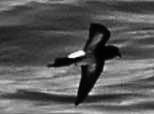Over the last few years, there have been frequent suggestions that the Skeptics organisation in New Zealand should have a new name. At present, our formal name is the New Zealand Committee for Scientific Investigation of Claims of the Paranormal Inc. Originally, this was an adaptation of the name of our sister organisation in the US, the Committee for Scientific Investigation of Claims of the Paranormal. The American organisation has recently changed its formal name to Committee for Skeptical Inquiry. This has been a prompt for our committee to re-open the issue here. The reasons put forward for change, both here and in the US, can be summarised as:
The present name is very cumbersome, and few people can remember it, let alone use it.
Because of its length, it is very seldom used by the media.
Perhaps most importantly, the emphasis on ‘paranormal’ does not accurately reflect the current breadth of our interests.
On this last point, it is interesting to note that over the last several years there have been very few, if any, journal articles or conference presentations on paranormal issues, particularly if one takes the common perception of ‘paranormal’ as being substantially equivalent to ‘supernatural’. To quote one of the arguments put forward for the USA change, “We have never been limited to just the ‘paranormal’. From the beginning we have been concerned with all manner of empirical claims credulously accepted without sufficient critical examination. Our goal has been to provide scientific examinations of these claims, so that reliable, fact based, verified information can be used in making judgments about them.”
If it is accepted that there is a case for change here, we are then faced with the choice of a new name. The first obvious thought is to once again mirror the US name. We would then become the New Zealand Committee for Skeptical Inquiry. However, the word ‘Committee’ seems inappropriate in New Zealand usage. Our organisation is a large and broad-based national society, and is legally a registered incorporated society. This leads to an option ‘New Zealand Society for Skeptical Inquiry Inc’.
Another suggestion is ‘Skeptical Enquiry New Zealand (Inc)’ (SENZ).
(It is probably worth noting here that the use of the word ‘inquiry’ in any new name would be in line with the traditional distinction that reserves ‘inquiry’ as pertaining to ‘a formal investigation’ rather than simply asking for information or clarification, the traditional meaning of ‘enquiry’. However, ‘Skeptical Inquiry New Zealand’ would be an unfortunate choice as it would leave us with the acronym SINZ.)
It has also been suggested by some that we should move away from the term ‘skeptic’ completely, because it has negative connotations and is commonly misunderstood. To quote one of our committee members, “I get fed up with explaining to people that sceptic does not mean cynic and we are not party-poopers!” However, it is difficult to come up with a suitable alternative. Terms such as ‘Society for Science and Reason’, ‘Sense About Science’ and ‘Common Sense About Nonsense’ have arisen, but none of these seem to properly reflect our raison d’être.
If we are to change the name, it will require a resolution at our next AGM. For the moment, the committee invites discussion and suggestions on whether we need a name change and what it should be.
Email: chair@skeptics.org.nz


